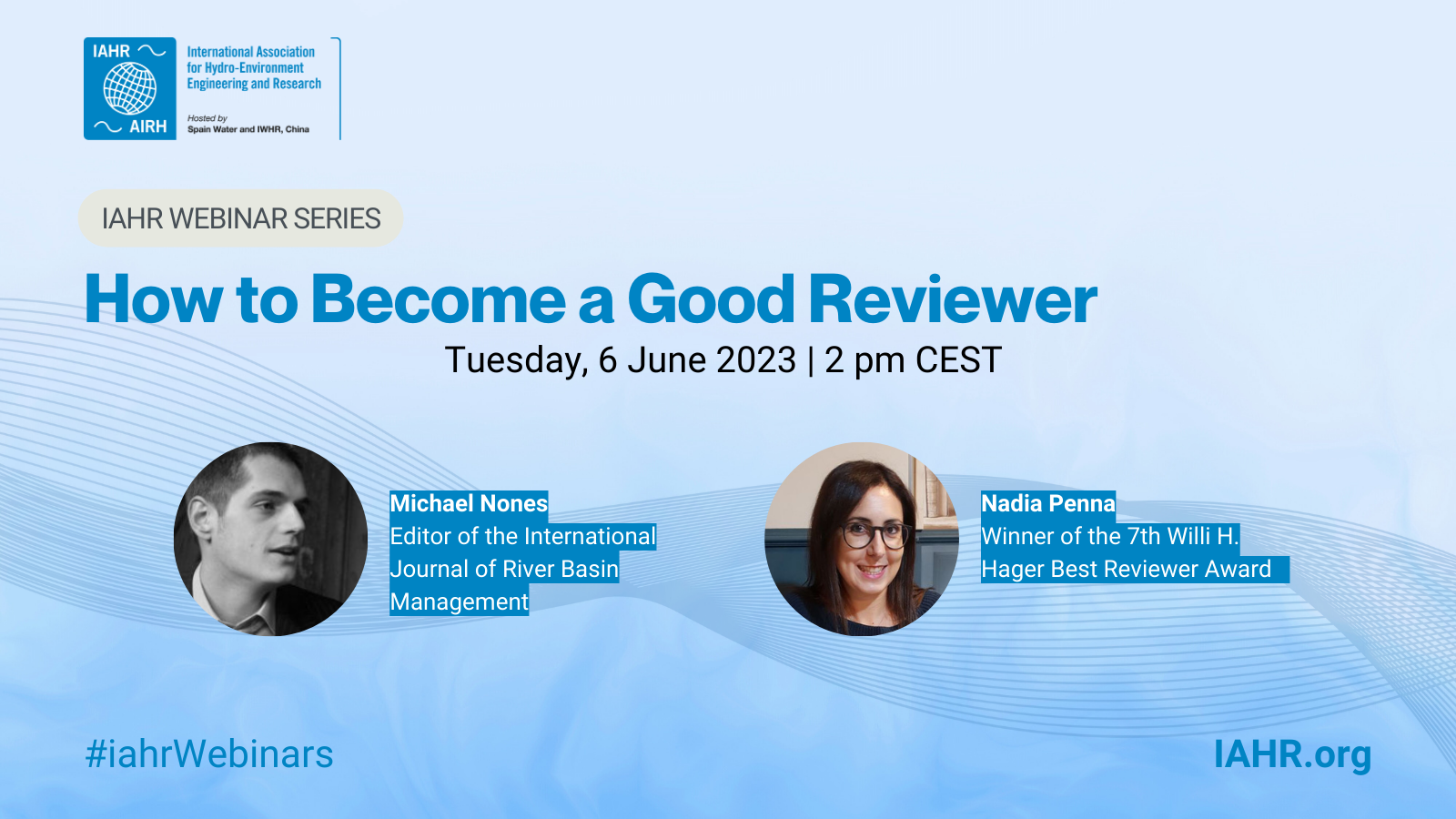Highlights: IAHR Webinar | How to Become a Good Reviewer

Event Home Watch on Demand! Presentations
Introduction
The webinar, organised as part of the activities of the IAHR Technical Committee on Education and Professional Development (EPD) was aimed at giving advice to do a good review for peer-review journals and help potential reviewers on that relevant role.
More than 60 participants joint the live session!
Presentations
Dr David Ferras and Dr Qian Yu, as chairs, introduced the webinar and the IAHR Committee on Education and Professional Development.
Estíbaliz Serrano gave an overview of IAHR Journals. She invited potential authors, reviewers and readers to select IAHR journals for their contribution whatever the role they were playing, highlighting that contribution helps in developing hydro-environment sciences.
Dr Michael Nones briefly introduced the peer-review process and the manuscript workflow. He provided a checklist with possible questions to be answered during the revision process, to help editors reach a decision. Finally, he highlighted some important points to be considered by reviewers to help editors.
It was also mentioned that IAHR is aware of the importance of the reviewers in the peer-review process and that they are acknowledged by publishing their names, issuing certificates, through PubLons and through the Willi H. Hager Best Reviewer Award, which recognizes the best reviews received in the Journal of Hydraulic Research, the flagship journal of IAHR.
Dr Nadia Penna talked about the reviewing process from the reviewer's perspective. She suggested some information and tips to be taken into account when preparing a review, in order to provide a constructive and objective report that can really help the authors to improve the quality of their paper.
The final Q&A section was animated by multiple questions related to the Editorial process, how Editors evaluated manuscripts and reviewers’ comments, and how reviewing can help young scientists better develop their scientific profiles.
Presenters responded to approximately 20 questions at the end of the presentations, showing that the topic is of interest to the scientific community.
Related
How to Multiply by 6 the Impact of your Research: Open Access and IAHR Journals
Taylor & Francis Resources_tips